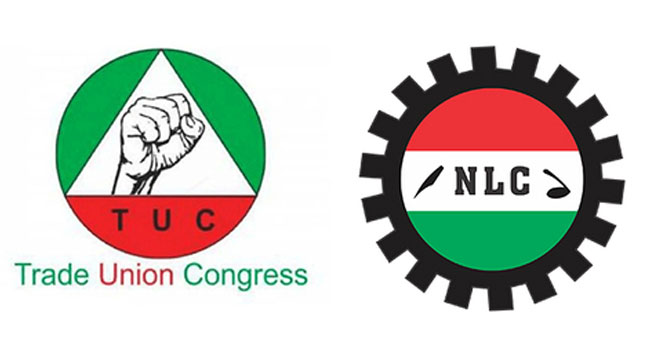The Nigerian Labour Congress (NLC) announced on Tuesday that its earlier proposal of a N200,000 minimum wage to the Federal Government is no longer realistic given the current economic challenges facing the country. The NLC, represented by its National Vice President, Tommy Etim, responded to the inauguration of the Minimum Wage Committee by Vice President Kashim Shettima, stating that the congress would now base its negotiations on the prevailing economic conditions.
In an exclusive interview with The PUNCH, Etim emphasized that the socio-economic challenges and the devaluation of the naira were not as severe when the NLC initially proposed the N200,000 minimum wage. He clarified that the congress would not present a fixed amount but ruled out the possibility of advocating for N200,000, considering the changed economic landscape.
The Federal Government urged the 37-man wage committee to expedite its deliberations and submit recommendations promptly. The committee, comprising representatives from federal and state governments, the private sector, and organized labor, is tasked with recommending a new national minimum wage. President Bola Tinubu emphasized the importance of ensuring the ability of all parties to pay the new wage while urging timely completion of the committee’s assignment.
The NLC’s change in stance follows months of agitation from organized labor, which had expressed concerns over the government’s delay in inaugurating the new national minimum wage committee as promised during negotiations last October. The Minimum Wage Act 2019, signed by former President Muhammadu Buhari, empowers the committee to deliberate and present an agreed wage for legislative approval.
Despite a previous wage award of N30,000 for federal and state workers in 2019, the organized labor called for a review in 2024 due to the discontinuance of fuel subsidies in May 2023, leading to a surge in the cost of living. President Buhari assured the committee that his administration aims to surpass the basic Social Protection Floor for all Nigerian workers, considering the sustainable payment capacity of each tier of government and other employers.
While the tripartite committee commences its deliberations, concerns have been raised about the impact of raising the minimum wage without addressing the rising prices of essential commodities. Critics argue that increasing wages alone may not improve workers’ well-being if the cost of living continues to soar.
The 37-member committee includes six governors, cabinet ministers, representatives of organized labor, and the private sector. The governors represent various geopolitical zones, and the ministers include the Minister of Finance, the Minister of Budget and Economic Planning, the Head of the Civil Service of the Federation, and the Minister of State for Labour and Employment.
























